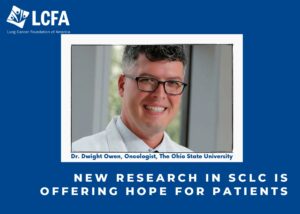 – Consumers are urged to understand which GLP-1 medications are safe, approved, and legal after May 22
– Consumers are urged to understand which GLP-1 medications are safe, approved, and legal after May 22
If you’re one of the millions of Americans who have used or thought about using GLP-1 weight-loss drugs, it’s important to ask yourself, “What’s real, what’s safe, and what should I avoid?”
In 2022, growing demand combined with limited supply created a shortage of these GLP-1 medications. In response to this shortage, the U.S. Food and Drug Administration (FDA) permitted licensed compounding pharmacies to fill this gap and create non-FDA-approved “compounded” versions of these products. These unapproved products lack the assurances of safety and effectiveness that come with FDA-approved medicines and were only intended as a temporary fix during the shortage. But bad actors have used the temporary shortage to mass market untested, unapproved products and even products that are meant for “research purposes only.”
Fortunately, the FDA declared the national shortage of GLP-1 medications over and said compounding pharmacies must these compounded medications after May 22, 2025. However, the marketing of compounded and other risky, illegal weight loss products is expected to continue—leaving patients who are working hard to manage chronic diseases like obesity without a clear understanding of the facts.
Patient confusion is already a serious issue and is likely to intensify in the coming months. A by the National Consumers League (NCL) found that widespread confusion already exists among women: more than 70% believe compounded GLP-1s are only on the market if they have been tested and proven safe, and more than half (53%) think compounded GLP-1s have received FDA approval. Neither of these claims is true.
Here are five things consumers should know to protect themselves:
- Mass Compounded GLP-1s Are Not Supposed to be on the Market after May 22
While only products that are “FDA-approved” and are prescribed by a medical professional are supposed to be on the market, consumers will still have to beware of fake ads, sites, and GLP-1s. The statement “doctor approved” is a red flag. - Only FDA-Approved GLP-1s Are Proven Safe and Effective
FDA-approved drugs undergo clinical trials to ensure they are safe and effective. Compounded alternatives do not and they also pose more potential risks to patients. - If It’s a Gummy, Chewable, Spray, Patch, or Under-the-Tongue Form, It’s Fake
Be wary of products that claim to be GLP-1s in forms other than an injection. These are very likely not FDA-approved medications and may be counterfeit. - Don’t Fall for Misleading Marketing
Slick websites and social ads can make unapproved medications, and even illicit drugs, seem like the real thing. But according to , 85 percent of women with obesity believe the false claims made in online non-brand GLP-1 ads. Protect yourself by sticking to trusted medical providers and learning how to spot false claims. - Ask Questions and Stay Informed
Not sure if your medication is the real thing? Ask your health care provider or company selling you the GLP-1 if it’s the FDA-approved brand product. You can also reach out to the FDA-approved manufacturers to determine whether you have authentic medicine.
Both the FDA and consumers have important roles to play in stopping the spread of misinformation about GLP-1 weight-loss drugs. Now that the shortage is over, the FDA must enforce the law and its long-standing standards for compounded products. Consumers can act too, by asking questions, avoiding questionable sources, and learning how to tell the difference between what’s FDA-approved, what’s fake, and what’s a risk.
To report fake GLP-1s or learn more about how to protect yourself, check out from the National Consumers League.



